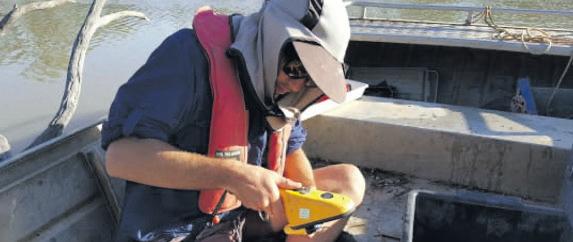
1 minute read
OzFish launches frst ever recreational angler tagging program across Murray-Darling Basin

OzFish Unlimited
Recreational fshers are being given a golden chance to show how valuable they are in the Murray-Darling Basin as part of an innovative new fsh tagging project. For the frst time, a program is entrusting freshwater anglers and river rangers with this important work.
OzFish Unlimited, together with Charles Sturt University researchers and First Nations groups will spearhead the program thanks to funding support from the Australian Government’s OneBasin CRC program and the NSW Recreational Fishing Trust.
OzFish are calling on recreational fshers to express their interest now online.
Volunteers will be required to complete specialist training on fsh handling and will be taught how to implant the Passive Integrated Transponder (PIT) Tags with a special tool.
The frst workshop will be held at Deniliquin on November 25 with further events scheduled to take place at Swan Hill and Mildura early in 2024.
Dr John Conallin who is supporting the project said tagging programs can provide a wealth of data on fsh movement patterns, habitat preferences, population dynamics, mortality rates and more.
“The data gathered will give us a long-term picture of where native fsh are moving and perhaps not moving in the Murray Darling
Basin. It is critical to help uncover where our energy and focus needs to be to help native fsh.”
Braeden Lampard, OzFish’s Senior Program Manager Murray Darling Basin believes it is about time inland recreational fshers were given this opportunity.
“Australia runs some of the largest and longest running saltwater tagging programs in the world. They’ve been widely used for years with the support of recreational fshers, however for our freshwater anglers along the Murray Darling Basin, this is uncharted territory.
In contrast to conventional tagging programs in saltwater environments, these tags are designed to emit signals or “ping” when the fsh passes through a lock or fshway.
“Participating anglers will have the opportunity to access the data associated with the fsh they tag,” said Braeden.
The long-term goal is to utilise rec fshers and river rangers in long-term fsh tagging programs across the Murray-Darling Basin, integrated into scientifc programs as trusted partners.
Anglers are asked to register now via: ozfsh. org.au/nsw-native-fshtagging-eoi-2023









